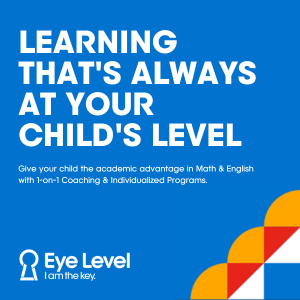
Learning centres can be found in most residential and commercial areas in Malaysia, and are an important aspect of the educational landscape here.The majority of learning centres in Malaysia provide focused tutoring on school subjects with the aim of helping children excel in a given area of the curriculum such as English, mathematics or science, or prepare for high-stakes exams like the IGCSE, IELTS or SAT. Many learning centres have developed their own unique programs and practices. Beyond offering traditional “tuition”, these institutions employ cutting-edge teaching and learning approaches, thereby enriching the learning experience and enabling students to approach a familiar subject area in a fresh and exciting manner. There are also centres that offer courses and activities not found in the school curriculum such as swimming, music, martial arts, dancing and foreign languages to provide children with a well-rounded educational experience. In the past few years, enrichment centres – learning centres that employ more modern, inquiry-based pedagogical methods – have become increasingly popular on the local education scene.

Enrichment centres aim to provide a non-traditional, engaging learning environment that incorporates elements of play and creative technology to help children cultivate an enjoyment of learning, motivate them to explore the world around them, and inspire them academically. Besides offering the standard academic subjects typically found in school curricula, some learning centres also provide unique courses such as Lego robotics, photography, kids yoga and pilates, cooking, theatre production, rock music and fencing. These courses open up new opportunities for children to develop talents in areas that are not typically covered in the conventional school curriculum. For example, speech, drama and debate programs at learning centres can work wonders on a child’s confidence and communication abilities at school as they are focused on helping children learn to express themselves clearly, articulately and coherently.
Before choosing a learning centre for your child, take the time to consider the following factors:
Key Considerations
Before choosing a learning centre for your child, take the time to consider the following factors:
Your Child’s Learning Needs and Goals
Before choosing a learning centre, the first and most important question you need to consider is: what are your child’s learning needs and goals? Does he or she, for example, require help in better understanding a school subject or excelling in an exam, or would it be good for him to gain proficiency in a musical instrument or explore his interest in the inner-workings of an engine? Once you have determined what your child’s needs and goals are, you can choose a learning centre program that suits him or her. Keep in mind that - though you can discuss and explore this line of questioning with your child - some children might be resistant to starting a course at a learning centre and may require encouragement to try something new and different. To cater to this, some centres offer trial classes so that your child can sit in for a session or two to determine his or her level of interest.
Learning Style
Your child’s learning style is also another factor to consider when choosing a class and tutor. If he is a visual learner, pictures and diagrams will best help him process information. As an auditory learner, listening to tutors and engaging in conversations will better help him understand the subject area. A kinesthetic or tactile learner will use his or her hands to learn and explore by building and reshaping items and objects around him or her. Or perhaps he or she best learns by reading materials and taking notes? A course that employs learning methods and technologies that suit your child’s learning style would enable them to expand their understanding and enhance their aptitude in a given subject area.

Skills and Knowledge Gained
Another item to consider is whether the skills and knowledge gained in the course will benefit your child in the long run. Traditionally academic-leaning classes were believed to boost a child’s prospects for higher education and employment, but parents’ mindsets have evolved and embraced the developmental value of exposing children to creative endeavors such as art and music. Besides this, classes that involve sports and physical activities such as dancing or fencing provide numerous health benefits – both physical and psychological.
Choosing a Centre
Fees are a major consideration when it comes to choosing a learning centre and it helps to find out the various options available suited for you financially. Courses that offer a low student-to-teacher ratio are also generally better as the tutors can provide students with individualized attention and instruction. It is also important to find a learning centre that is licensed and accredited by the authorities as they meet certain standards required to teach given subjects. Location is another key factor, and you will probably want to choose a learning centre that is located in the vicinity of your home or your child’s school to avoid a lengthy commute.
Time Management
Though it is your intention to give your child the best in life, you should always be careful not to overwhelm and exhaust him or her. These days, children’s schedules are generally packed with activities during and after school. It is important that your child is not overloaded and is able to achieve a healthy balance between school and rest, play and quality family time. Your child only has one childhood and there are many other factors besides school and classes that will shape their future outlook and the individual that they will become one day. Bear this in mind when choosing learning center classes for your child, ensure that these extra classes are a wise investment of his or her time and will provide long-term benefits. Here are a few questions to think about before enrolling your child at a learning center:
- What are your child’s needs?
- How can the learning center help your child?
- What skills or knowledge will your child learn?
- Are these skills important for his or her future?
- Is the learning center reputable?
- Are the teachers or instructors qualified?
- Will your child enjoy the experience and benefit from it?













![[elc International School] NO SHORTCUTS: WHY THINKING STILL MATTERS](https://mint-edm.sgp1.digitaloceanspaces.com/production/XTvbqZxxQQxUHjyDcClxCortA5SxNs.png)




















